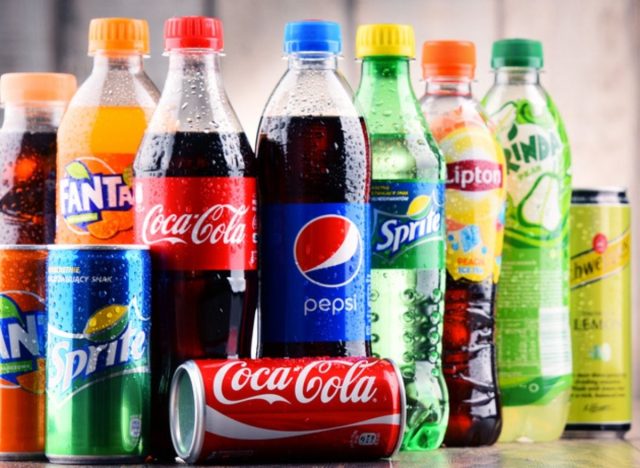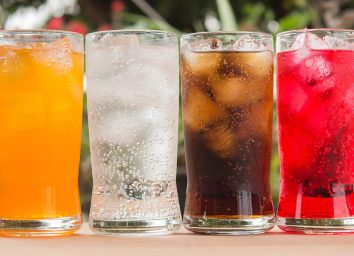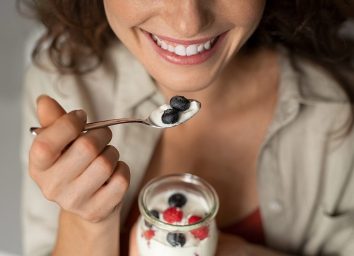The #1 Drinking Habit to Avoid to Keep Your Brain Sharp, Says Dietitian

Whether you’re staring at a computer screen all day, recovering from being sick, or even trying to start the car but you can’t remember where you put your keys, brain fog can get the best of us. Sometimes, we’re not feeling like ourselves, and we can’t quite put a finger on it, but something in how we feel seems off. Our brains feel sluggish, not sharp, and even a little fuzzy.
Thankfully, brain fog typically tends to get better on its own, so the feeling is usually temporary. However, there are ways to make your brain fog worse and other ways to prevent it. According to Amy Shapiro, MS, RD, member of our medical expert board, the drinking habit to avoid to keep your brain sharp is consuming sugary beverages.
“These drinks flood the body with large amounts of sugar, artificial colors, preservatives, and often caffeine,” says Shapiro.
Shapiro suggests that at first, the sugary drinks provide a sensation of alertness. However, they then quickly result in brain fog, more sugar cravings, anger, and fatigue. aside from not keeping your brain sharp, these sugary drinks can also lead to inflammation in both the body and brain in the long run. Eventually, this can result in Alzheimer’s, dementia, stroke and heart disease, among other problems.
“These drinks are void of nutritional benefits and are the cause of many chronic diseases,” says Shapiro. “Most health professionals would recommend removing all sugary beverages from your diet to promote health and improved cognition.”
According to a study posted journal, Stroke, research showed that both higher recent and cumulative consumption of artificially sweetened soft drinks were associated with an increased risk of ischemic stroke, all-cause dementia, and Alzheimer’s disease dementia.

The researchers studied 2,888 participants aged above 45 years for incident stroke and 1,484 participants aged above 60 years for incident dementia. Beverage intake was calculated using a food-frequency questionnaire at cohort examinations—questions about health or social wellbeing and undertaking some kind of physical examination or tests. The researchers fired out recent consumption and cumulative consumption by averaging across examinations. Surveillance continued for 10 years. The results included 97 cases of incident stroke (82 ischemic) and 81 cases of incident dementia (63 consistent with Alzheimer’s disease).
More data posted in the Cureus Journal of Medical Science further concluded that artificially sweetened drinks are associated with a higher risk of stroke and dementia.
A study mentioned in Cureus summarized that when tested on rats, sugar-sweetened beverages (SSBs) affect brain waves in different patterns, and affect the rats’ brain energy function by inhibiting serum and brain creatinine kinase. Furthermore, they also alter electrolytes– substances that have a natural positive or negative electrical charge when dissolved in water- by increasing calcium and sodium while decreasing copper, iron, zinc, and potassium. Consuming SSBs during pregnancy and childhood may also negatively impact child cognition.








